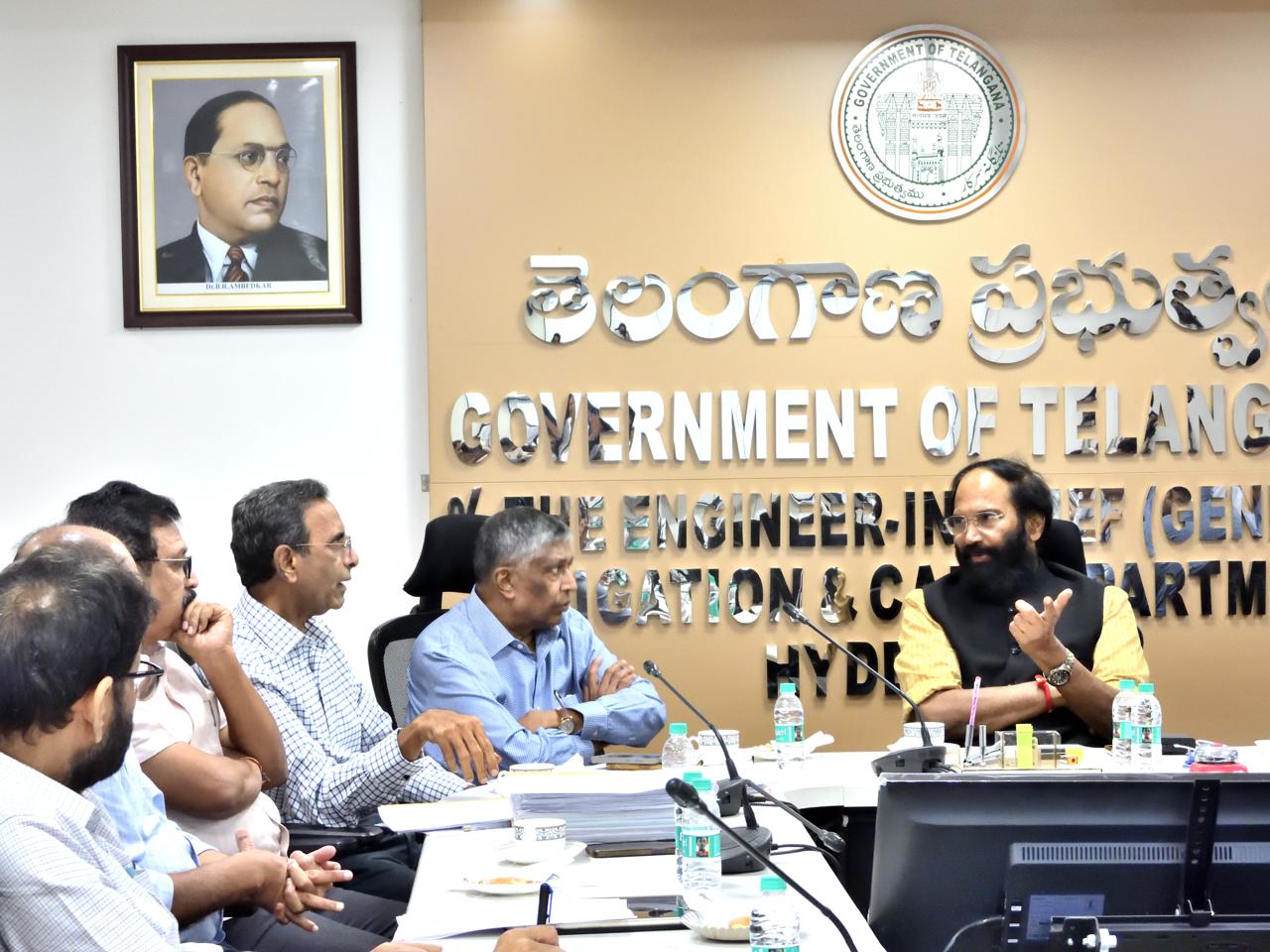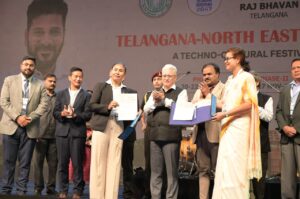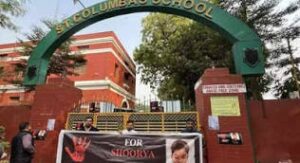
Minister Uttam to personally attend KWDT-II hearing from September 23
- Uttam reviews legal preparations on KWDT case, asserts Telangana’s major share
- • Minister chairs review with senior counsel and experts ahead of KWDT-II hearings from September 23–25
Hyderabad, September 13: Irrigation and Civil Supplies Minister Capt. N. Uttam Kumar Reddy on Saturday reiterated the Congress government’s commitment to protecting Telangana’s interests in the Krishna water dispute, stating that not a single drop of water belonging to the state would be allowed to flow waste. He said every measure was being taken to ensure the maximum utilisation of Krishna waters for irrigation, drinking, and industrial needs.
The Minister chaired a high-level review meeting at Jala Soudha with senior Supreme Court counsel C.S. Vaidyanathan and a team of legal and technical experts. The discussions were held in preparation for the crucial Krishna Water Disputes Tribunal-II (KWDT-II) hearings scheduled in New Delhi from September 23 to 25. Describing the upcoming session as “potentially the last round of hearings,” Uttam Kumar Reddy said Telangana must present its case with clarity and resolve.
He informed the experts that Chief Minister A. Revanth Reddy had also altered his schedule to join consultations on the matter. “We will be briefing the Chief Minister about the issues placed before the Tribunal, the progress made so far, and what further steps are required to secure Telangana’s just share of Krishna waters,” he said. The Minister confirmed that he would personally attend the Tribunal hearings later this month.
According to officials, Telangana’s pleadings before the Tribunal since February 2025 have focused on highlighting the historical injustices faced by the region under the united Andhra Pradesh. The arguments have covered basin parameters, principles of equitable distribution, scientific crop water requirements, the impact of changing cropping patterns, and the misuse of water allocations by Andhra Pradesh through unauthorised outside-basin diversions.
The state has underscored that Andhra Pradesh has consistently expanded canal capacities and illegally lifted Krishna waters to regions outside the basin, particularly through projects linked to the Godavari, Pattiseema, Chintalpudi and Pulichintala diversions. Telangana’s legal team has also pressed the Tribunal to take note of evaporation savings, alternative sources available to Andhra Pradesh, and legal safeguards provided under the Inter-State River Water Disputes Act, 1956 and the Andhra Pradesh Reorganisation Act, 2014.
The Minister emphasised that Telangana’s demand for 71% out of 811 TMC of dependable Krishna water is based on fair principles. He said the state had presented documentary evidence to show that almost the entire 65% dependable flow should be earmarked for Telangana’s projects, given the extent of drought-prone areas and the lack of irrigation infrastructure historically.
The Minister said, “Telangana has filed credible and updated data to justify the enhanced requirements. Our government has taken an in-principle decision to create additional capacities and utilise the maximum possible water. We are determined not to miss this opportunity.”
Officials briefed the Minister that while most major issues have been argued, a few crucial topics remain. These include allocation of carryover storage, liberty to utilise remaining waters above 2,578 TMC, and general principles of operational protocol. Telangana is seeking liberty to store and use leftover water through offline storages, particularly in drought-prone areas, and to ensure June–July requirements of at least 80 TMC are secured.
The state will also argue that in-basin demands must take precedence over outside-basin diversions. Telangana is seeking en bloc liberty to utilise its allocation in any manner it deems proper within the basin. Legal issues, including the interpretation of Section 4(1) of the ISRWD Act and the efficacy of Paragraph 10 of the Eleventh Schedule of the Reorganisation Act, will also be raised.
The government has further pointed out that savings of nearly 291 TMC have emerged due to updated scientific assessments of crop water requirements, changes in cropping patterns, and alternative sources tapped by Andhra Pradesh. Telangana has asked that these savings be redistributed equitably.
The Minister was informed that Andhra Pradesh has persistently opposed these projects before the Supreme Court, National Green Tribunal, and River Management Boards, leading to delays. Telangana will now press the Tribunal to acknowledge its right to develop these schemes.
Government Orders (GOs) are also being prepared for ongoing and contemplated projects to reinforce the case. These include capacity expansion of Kalwakurthy, Nettempadu, and Palamuru–Rangareddy LIS; creation of new reservoirs for Hyderabad’s drinking water needs; and the Jurala Flood Flow Canal designed to divert 100 TMC during flood season.
The Minister recalled that in the past, Telangana could not fully utilise Krishna waters due to the absence of projects, while Andhra Pradesh benefited from diversions and increased canal capacities. “After Congress came to power, we have come up with concrete plans to tap every drop of Krishna water available to us. Our farmers will not be left dependent on rainfall alone, and Hyderabad’s growing drinking and industrial needs will also be safeguarded,” he said.
He added that the government was committed to creating huge storage capacities, both online and offline, to ensure water availability even in deficit years. “The Tribunal has acknowledged the injustices done to Telangana. We must continue to pursue our case with firmness and ensure that our rightful share is secured once and for all,” he said. (eom)





